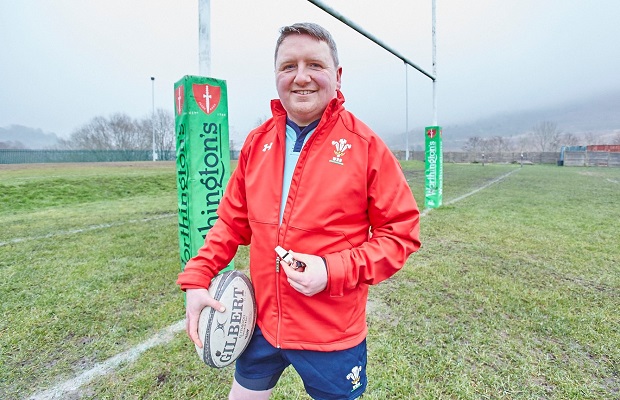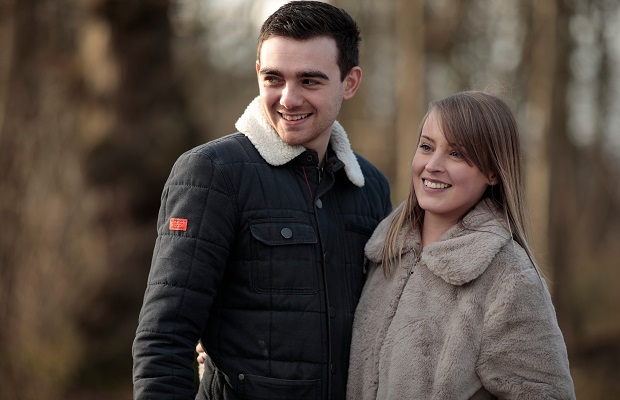Life as a young adult comes with challenges, and even more so when you have a heart or circulatory condition. Lulu Trask hears from three people on how they're approaching it.
Dating, going to university and getting a job are daunting experiences for many people. But when you have a heart or circulatory condition, they can be even more challenging.
Vicky Robinson, from Nottingham, is 30 and has a complex form of congenital heart disease. She was diagnosed at just five weeks old and has been living with the condition all her life. Mallaidh McCoubrey, from Wiltshire, is 22, and found out she has coarctation of the aorta (when you are born with a narrowing of the main artery that leaves your heart) during her second year of university.
And Bedwyr Gullidge, from Pontypridd in Wales, is 33 and was born with holes in between the four chambers of his heart, called atrioventricular septal defect (AVSD). He now has permanent atrial fibrillation (AF) and a degree of heart failure.
Going to university
“In terms of going to uni, I would massively advise to still go,” says Mallaidh, who was diagnosed while studying at York St John University. She then went to Queen’s University Belfast for postgraduate studies. There, she registered with the university’s disability services, who she says were very helpful. “They got me extensions on my work when I needed it."
You just need to remember that there are people who can help you.
Mallaidh McCoubrey
But going to university is a big step. “If you’ve lived at home and your parents have always looked out for you, it can be quite daunting to be away from that protection,” says Bedwyr, who did three degrees at the University of South Wales and Swansea University – two living on campus and one living at home. Despite feeling daunted at first, he found living at university much easier, because there was less travel involved.
“Living on campus, I did the full university thing, but when I lived at home, after a day of lectures and then an hour’s drive home I’d be quite tired. I just needed to rest, rather than pick up books and start doing assignments.”

Mallaidh at her graduation with boyfriend Lewis
Starting a job
Having office-based jobs, Vicky and Mallaidh haven’t found that their conditions affect their day-to-day work, but there can be a few challenges.
Vicky, an account manager for a school uniform provider, initially experienced a bit of resistance from her employer when she needed to take time off related to her condition. But now the company understands her condition, her medical absences are not a problem. However, it still affects how she thinks about taking time off: “If I feel a bit under the weather, I try my best to go to work, because of all the hospital appointments I have to go to.”
Bedwyr began his career working in the film and television industry, including for the BBC, but soon found the long and physically demanding days were too much. “Fourteen hours on your feet wasn’t something I could do five days a week for a nine-month shoot.” Because of his condition, Bedwyr was always interested in cardiology, and a few years after stumbling across a degree in cardiology, he now works as a Cardiac Physiologist at the University Hospital of Wales in Cardiff. He says he can really relate to his patients and that the job is “the perfect fit”.
Keeping fit
Bedwyr is a big rugby fan, and also works as a referee for the Welsh Rugby Union, taking charge of seconds, under-19s, university and women’s games. “Through refereeing, I can still lace up my boots and be involved in the game.”
It can be challenging, he says, but it’s about listening to what your body is telling you.
Bedwyr had to adapt his referee training, replacing high-intensity exercise with lighter leg weights or squats to build up power. “It’s about getting the same results but in a slightly different way.” Bedwyr also enjoys going to the gym: “It’s easier to control speeds on a treadmill, and control how hard you push yourself and your heart.”

Bedwyr is a referee for the Welsh Rugby Union
The gym is also a big part of life for Mallaidh – it was something she loved before her diagnosis and something she’s been able to continue with, in part because she hasn’t had any surgical procedures. “My mum always tells me I have to be careful,” she says. “I have a medical wristband that I wear at the gym, which says my condition on it, just in case.”
Party time
Whether it’s a university freshers’ week or friends’ birthdays, socialising is a big part of life for many young adults, and this is often intensified at university.
“On the whole, I was able to join in with the social side,” says Bedwyr – who adds that, in some ways, the university environment can actually be beneficial. “Once you’ve got to know people, it’s worth saying, ‘Keep an eye on me tonight and make sure I’m not flagging’. Your friends are more likely to notice if you’re unwell when they see you every day.”
Vicky drank alcohol in her late teens, but she says this was largely down to peer pressure. “My friends at the time didn’t get that I didn’t want to drink. They’d say, ‘Just have one’. But I soon realised I hated it, and I’m not really supposed to drink anyway, so I don’t drink at all now. I’m happy to go out, I just don’t drink.”
Some people with a heart condition are prescribed warfarin, which means it’s particularly important not to binge drink or drink more than the national guidelines of no more than 14 units a week. Bedwyr, who is on warfarin, says: “I remember my cardiologist saying, ‘I’m not going to tell a young 20-something not to drink’, but a lot of it is just about being sensible.”
Dating and relationships
Mallaidh was already in a relationship with her boyfriend, Lewis, when she was diagnosed. “We weren’t in the same country when we found out, which was the most difficult part, but he’s been a really good support.”
Vicky and Bedwyr have had to deal with the realities of telling someone new about their condition. “I always felt I had to tell people how my condition means I’d probably never be able to have children,” says Vicky. “I hated it, because I knew they wouldn’t like it.”
But when she told her fiancé Alex – who she’s been with for seven years – he was very supportive. “When I told him that I probably couldn’t have kids, he just said he was most concerned about me being ok.”

Vicky says her fiancé Alex has been very supportive
Bedwyr had one relationship where he feels his condition was a factor in its ending. “She hadn’t had much experience with being ill herself, so even though outwardly I looked fine, inwardly I was struggling, and she just didn’t really comprehend that I was unwell.”
I always felt I had to tell people how my condition means I’d probably never be able to have children. I hated it, because I knew they wouldn't like it.
Vicky Robinson
Now Bedwyr tries to talk more openly about his heart condition.
The physical side can be affected too, and sex can be a real concern. For some, it’s a matter of getting out of breath during intercourse and having to make the decision to stop. Some heart medications can cause issues, as Bedwyr explains: “My medication stops my heart beating too fast, which means my body can’t always do as much as I might want it to, so I feel fatigued.”
Holidays
Because Mallaidh was diagnosed recently, she doesn’t feel she’s missed out on holidays with friends. But she does recall a trip to Disneyland Paris, not long after her diagnosis, where she says she got caught out: “I didn’t realise that I wouldn’t be able to go on some of the rides.”
For Bedwyr, the biggest concern on holiday was his scar. “For a long time, if we were going somewhere where we would be sunbathing, I was quite conscious of the scar on my chest. You could tell when people had spotted it.”
But Vicky felt she missed out when it came to holidays with friends: “I felt like I couldn’t go in case something would happen to me.” Now, she loves travelling. Vicky’s favourite destination is New York, where she went with Alex in December 2016: “It was so Christmassy, just like in all the films.” Next year, they’re heading to Las Vegas and are also going on their second cruise. “I think it’s because I missed out on so much when I was younger. But now I don’t worry about it. The insurance can cost a lot, but it’s just so worth it.”


